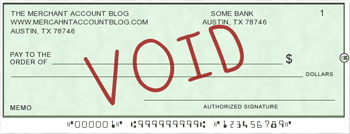In the past 2 weeks a very confusing and upsetting situation has takes place in India with the respect to Paypal and personal Indian payments.
It all started around the 1st of February.
All payments sent from personal Indian accounts are reversed. This would basically be like accepting a credit card, and 5 days later (long after the merchandise or service has been performed) that money is given back to the customer!
When reversed, there are several immediate reactions. First off, it is confusing to anyone who sent a payment and had it returned a few days later. It is more confusing and upsetting to the business that accepted that payment as they are now without the money and without the service or product that was paid for. Additionally, this unbalances the accounts of thousands and possibly millions of account holders, not just in India. Many of these recipient account holders made payments to other businesses. When the original amount was reversed and subtracted from their account, any recipient account lost money, and many Paypal accounts went negative. Some people got paid, while others lost the money. Paypal was also blocking any withdrawals to an Indian bank account, so even if a business did manage to get paid, there was no way for them to take the money out of Paypal.
As usual Paypal was completely mum about the actual details of the events of what was happening, further compounding the frustration and confusion that was sweeping Indian paypal account holders and those who received a payment from an Indian account. On February 5th, I had speculated that there was some government intervention going on, as the scope and damage that these events were causing were absolutely massive. Even at this point an Indian Paypal user could send money, and at first would seem successful, but would be returned several days later.
On the 6th of February, with Paypal users continuing to panic still trying to send money, Paypal finally publicly announced that there was a problem with personal payments.
I’m writing to let you know that personal payments to and from India and transfers to local banks in India have been suspended while we work with our business partners and other stakeholders to address questions they have about the service.
While this was an unacceptably vague response to the seemingly massive situation that was unfolding, it was nevertheless some response.
More problems…
About a day later, a second problem had been discovered with many Paypal accounts. After being refunded, many Paypal users noticed that foreign exchange fees had never been refunded. Thousands of Indian freelancers, Indian businesses, and worldwide businesses who accept payments from Indian account holders are getting more upset and confused. Although Indian payments only make up a small portion of Paypal payments, it’s clear that there is a major problem affecting far more people and businesses than just Personal Indian account holders. Now there’s money, paypal fees, and separate foreign exchange fees lost in millions of payments and refunds, a true accounting nightmare.
Everyone knows there is a problem, but nobody knows what it is and Paypal won’t say a word.
On February 10th the truth finally comes out.
1. Why did you suspend local bank transfers and personal payments to and from India?
We temporarily suspended these services to respond to enquiries from the Indian regulators, specifically questions on whether personal payments constitute remittances into India.
We’re working with the regulators and our bank processing partners in India to get this resolved as quickly as we can. We realize that this is causing considerable inconvenience to our customers and I want to reassure you that this is a top priority for the leadership at PayPal
2. When will personal payments be turned back on?
The regulators recently let PayPal know about revised licensing rules that we are now actively engaged in securing. Personal payments to and from India will be suspended for at least a few months until we fully resolve the questions from the Indian regulators.
3. When will local bank withdrawals be available?
Customers should be able to withdraw their funds to a local bank within the next few days. In the meantime, we’re going to restore the money into the PayPal accounts of any customers in India who have initiated a recent withdrawal, so they know that the money is safe in their accounts. Customers will also be reimbursed for any withdrawal fee charges.
4.The PayPal reversal has left me with a negative balance. What shall I do?
If you bought something or transferred money out of your PayPal account to your bank account before we reversed the payment then you may be left with a negative balance.
If this was a payment for a purchase of goods or services, you should contact the sender and have him or her resend the payment as follows:
(a) click the Send Money tab, and
(b) select “purchase.”
If this was a personal payment, then the sender will need to find another payment method until we restore the service. We’re sorry about this.
If you can’t recover the funds from the sender, you can bring your PayPal balance current by logging in to the PayPal account and clicking the “Resolve Negative Balance” link on the Account Overview page.
5. My payment was reversed but it was not a personal payment. What happened?
Only personal payments should have been reversed. Customers who believe that their payments were reversed in error should request that the payment be sent again by following the steps above (click the Send Money tab and select “purchase.”)
The Reserve Bank of India (RBI) put a halt to all Paypal payments when they finally realized that Paypal was a acting as a cross border money transfer system due to a law passed in 2008, “Providers of cross-border money transfer service need prior authorization from the Reserve Bank under the Payment and Settlement Systems Act,”. The reasoning behind the law is that many cross-border transactions are considered remittances, which fall under additional regulation by the RBI.
At this point, Indian Paypal account holders cannot send or receive money through paypal, and even many Business account holders cannot withdraw into their Indian bank account. Paypal has indicated that it may takes months before payments get back on track in India, leaving very few payment options for freelancers and many businesses in India’s rappidly growing IT services industry.
What strikes me as simply baffling is how it took 2 years for the Indian government to realize that Paypal users in their country could transfer money to and from Paypal users in other countries, and why they would tackle this situation is such a disruptive manner. Seriously, Paypal has been in India for several years and nobody bothered to consider that the fastest growing payment mechanism in India might fall under this new law when it was being drafted?
Equally baffling is why Paypal didn’t completely suspend Payments when they were given the request on January 27th. Instead they reversed thousands of transactions that had already been submitted, allowed these recipients to forward the money they received as payments to other businesses. They also continued to allow transactions to be sent until after the 7th, 10 days after they stated that transactions had been halted.
The combination of gross under-sight by India’s financial regulatory systems, and Paypal’s gross negligence in adequately responding to a major operational casualty, caused one of the larger payment system implosions that we’ve seen. Most of the ancillary damage was completely avoidable, had Paypal responded immediately and adequately to RBI’s request. While I’m sure that Paypal will pull through unscathed as they have so many times before, I do believe that their position in the Indian payments market will be scarred for a long time.
 Credit card fraud and online ordering fraud has hampered ecommerce merchants since the first credit card payment was taken over the internet. Because fraud is still successful, and because there is virtually no way to go after someone you suspect of fraud, it is still a plague to website owners trying to run a business on the internet. Online fraud is especially troublesome to online retailers, because they end up losing twice, first when the merchandise they shipped is not recoverable, and second when the real cardholder makes a chargeback. Now they lose the merchandise and the money they would have collected for it. There are numerous fraud screening applications designed to help ecommerce merchants prevent accepting and shipping fraudulent orders. However, many ecommerce sites aren’t even covering the most basic of fraud screening principals.
Credit card fraud and online ordering fraud has hampered ecommerce merchants since the first credit card payment was taken over the internet. Because fraud is still successful, and because there is virtually no way to go after someone you suspect of fraud, it is still a plague to website owners trying to run a business on the internet. Online fraud is especially troublesome to online retailers, because they end up losing twice, first when the merchandise they shipped is not recoverable, and second when the real cardholder makes a chargeback. Now they lose the merchandise and the money they would have collected for it. There are numerous fraud screening applications designed to help ecommerce merchants prevent accepting and shipping fraudulent orders. However, many ecommerce sites aren’t even covering the most basic of fraud screening principals.
 How did we get to this point?
How did we get to this point? We’ve just finished a PHP Integration class for the Network Merchants Payment Gateway.
We’ve just finished a PHP Integration class for the Network Merchants Payment Gateway.



